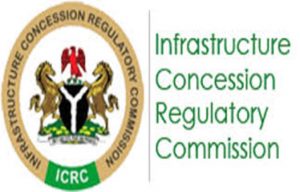Nigeria’s infrastructure funding deficit will grow to $100 billion in the next five years, the Infrastructure Concession Regulatory Commission (ICRC), has said.
ICRC Acting Director-General, Michael Ohiani made this known when he received a delegation from the Nigerian Shippers’ Council (NSC) led by its Executive Secretary, Emmanuel Jime.
He said: “We have a funding deficit of about $23 billion per annum, which will translate for instance in the next five years to about $100 billion, it is either we go through the national budget or we focus on the private sector as a means of raising funds.
“Interestingly, if we look at the transport sector, 25 per cent of the required investment which represents about $775 billion will come from the private sector, adding that there are clear infrastructure deficit which remains a big challenge and underscores the fact that we need to aggressively work on up scaling our infrastructure assets.”
The ICRC boss stressed the need to use Public-Private Partnerships in bridging the infrastructure gap in the country, saying the PPP model should serve as “a strategy that could be deployed in the transportation of goods to reduce over reliance on trucking which damages road infrastructure’’.
Ohiani said the road transportation accounted for more than 70 per cent of cargo movement in Nigeria, stating that transporting goods “by road using trucks is fraught with various challenges, including accidents, breakdown of trucks, illegal parking, congestion, as well as the wear and tear of the road.
To address these challenges, he said the Federal Ministry of Transportation, through the NSC, was developing Inland Container Ports and Vehicle Transit Areas using the PPP model.
“The PPP model remains the best funding option for the development of these projects under which the private sector provides the funds and runs the project, while the federal government provides the regulatory framework,” Ohiani said.
He urged the Federal Government to “make it mandatory for trucks and other articulated vehicles to make a compulsory stop at the vehicle transit areas after travelling for a period not exceeding six hours”.
Ohiani lamented that “the lack of funds had made it imperative for private sector to get involved in infrastructure development”.
Jime agreed that “the competing public needs coupled with dwindling resources would imply that there is not enough resources for government to undertake all development projects on its own”.
He added that “the module of development that engages the private sector is one to be encouraged and all of us who serve in the public service have also adopted it”.
Jime said the Council has been promoting a couple of transport infrastructure, adding that is was part of the core mandate of the Shippers’ Council to do so. He noted that most of the projects were being developed using PPP models.


